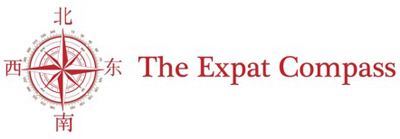
Three Questions for Expatriate Success
The ideal situation for coaching expatriates is to begin sessions prior to the relocation and run through the first few months of transition. This approach allows the expatriate (and their families) to better frame their experience beforehand and validate their thoughts once they have landed. International assignees often are not mentally prepared once they hit the ground; a surefire start to a difficult experience. Typical questions I ask of new international assignees are:
- What are my current perspectives and behaviors?
- What are culturally acceptable perspectives and behaviors (of my new host culture)?
- What are others’ perspectives and behaviors (in my new host culture)?
This model brings structure to one’s own behavior, their new environment and how they can best fit or manage in a new cultural setting. Expat professionals become more productive faster once they can figure how best they can assimilate into the new surroundings. Trailing families can better integrate as members of a community faster when they have a better understanding of similarities between their personal mindsets and the culture of the host community.
The first question helps an expat reflect upon the unique strengths that will aid them to be successful. Highly effective expatriates have a high sense of self-awareness. Self-reflection allows the client to mentally develop an inventory of behaviors and mindsets; a list that will either serve as strengths or derailers as an expatriate. An international assignee who cannot realize their own shortcomings will inevitably hurt relationships and more seriously, not even realize that relational damage has been done.
The intention of the second question is twofold. The first is to give the client an awareness that there are similarities and differences across cultures. Often times, expatriates overlook nuanced cultural differences in different parts of the same country or between countries with a similar heritage. This point was never so apparent as when I worked for companies based in California, Wisconsin, and New York and recruited Overseas Chinese to come to China. Cultural differences, even subtle ones, will always exist.
When the client accepts that a difference will always exist between a home and host culture, s/he must then have an idea of behavioral expectations. A natural corollary of this thought process is also realizing the power of bias in forming our perceptions of other cultures. Being aware of bias is important as the expatriate continues in their international assignment. Identifying the specifics of a culture is the first step in validating the new behaviors and/or finding alignment with their own personal values.
The third question closes the loop in the thought process of an expatriate’s thought process. It encourages expats to either invalidate or validate their perceived notions of the new host culture but also identifies areas of commonality with their own values as well as blind spots to be aware of. Invalidating incorrect perceptions are particularly powerful as it underlines the negative impact bias can have if it influences judgement. Many clients take the first step of letting go of biases and assumptions and in fact, make an effort to better listen and understand. Another common discovery from clients in this phase is that it is impossible to have a 100% fit in the new culture and that adjustments have to be made.
Lawrence Chi is a coach for expatriates and cross-cultural consultant. His mission is to grow expatriates professionally and personally and to make organizations more international. Visit his website www.TheExpatCompass.com.



Leave a Reply
Be the First to Comment!